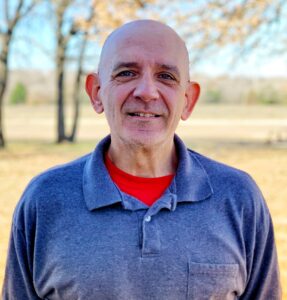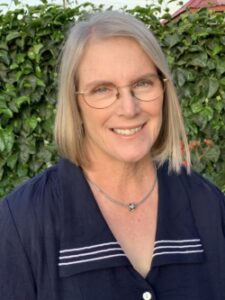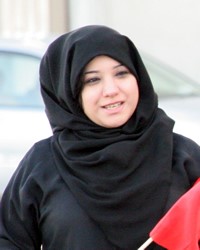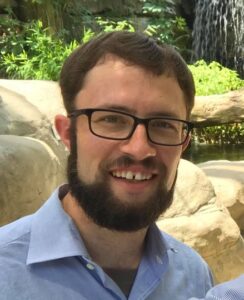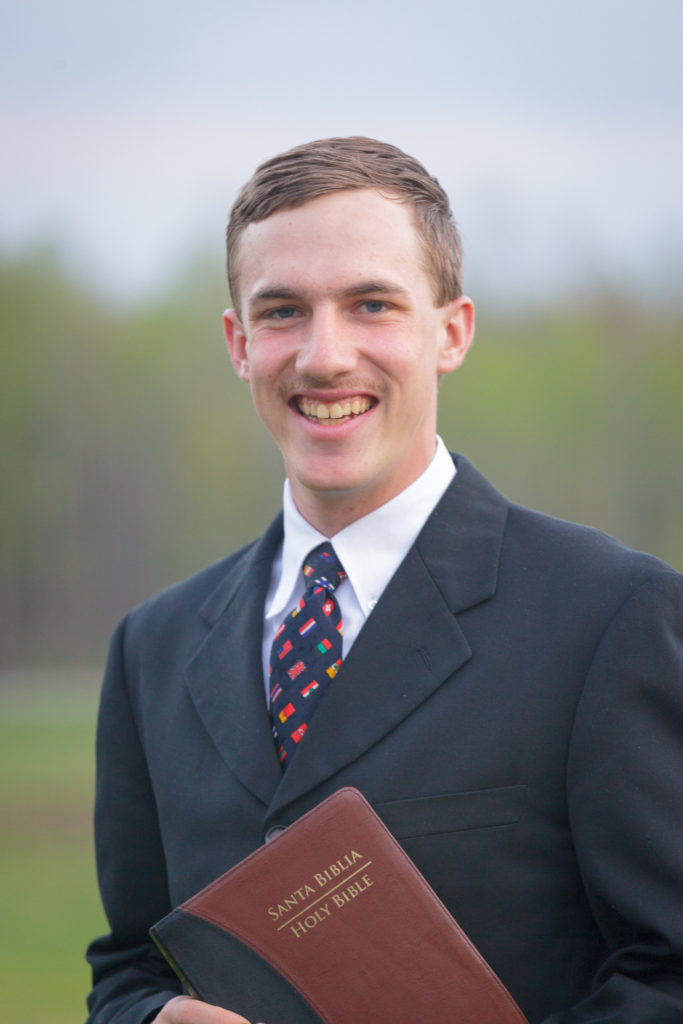There were many notable events in 1973. The infamous Supreme Court ruling Roe vs. Wade made legal the murder of sixty-six million babies over the next forty-nine years. The Watergate scandal was a top story for most of the year, and President Nixon assured us that he was not a crook. Vice president Spiro Agnew resigned over a tax evasion issue, and Gerald Ford was confirmed by the House of Representatives to replace him. The Twenty-fifth Amendment to the Constitution was ratified. The American Baseball League adopted the designated hitter position, and Secretariat won the Triple Crown. After the loss of over 58,000 men and one woman, we pulled out of Vietnam and gave South Vietnam to the
communists. Also, that year Papua New Guinea gained its independence from Australia.
It was not announced on national news or even on local news, but in September of 1973 the Baptist Bible Translators Institute (BBTI) began in a Sunday school classroom of Rolling Hills Baptist Church in Fort Worth, Texas. Before that time, no Baptist school existed to train missionaries in linguistics, language and culture learning, and Bible translation principles. The vision for BBTI grew out of the frustration of a Baptist missionary trying to minister in Spanish to a group of Indian people whose understanding of Spanish was extremely limited. George Anderson thought maybe he had missed the class at his Bible college that dealt with language learning. He inquired and found that no such class was given at his college or at any Baptist school in America, Canada, or England. In light of Christ’s command to teach all nations, George thought this was very strange. He learned that there are still thousands of unwritten languages with not a word of the Bible and where language schools do not exist. George correctly reasoned that if these people were to ever hear the Gospel or read God’s Word, they needed missionaries with specialized training to reach them. There are two kinds of men: One says, “This is not right. Someone ought to do something about it.” And the other kind says, “This is not right. I am going to do something about it.” George learned that training in linguistic and cross-culture communication was available at the non-denominational organization New Tribes Mission. The New Tribes leaders graciously agreed to accept George and his wife Sharon and train them with the understanding that the Andersons would use it to begin a similar school for Baptist missionaries. George asked his supporting churches to be patient with them for two years while they acquired this valuable training.
BBTI began with the Andersons and three other families: the Duffees, the Huddlestons, and the Cobbs. Realizing that a Sunday School classroom is not an appropriate place to train missionaries, we began praying and searching for a larger rural property. We had no money, but with the help of Paul Henderson, pastor of Central Baptist Church in Bowie, Texas, we were given one hundred seventeen acres of land with three houses five miles from Bowie. The move was made on April 1, 1974, and by then a fifth family, the Christensens, had joined the group.
Missionaries need to learn building skills, and repairs to our old houses provided plenty of on-the-job experience. The many hard and unpleasant tasks such as digging a ditch were classified as GMT (Good Missionary Training), and we did them as to the Lord, knowing that we were building something that would last. Today there is housing for four staff families and a dozen other families or single students. A multipurpose building was constructed in 2004 and an addition to it is currently in progress.
Advancements have been made in the field of linguistic and cultural anthropology, and BBTI has tried to keep pace. The courses of Teaching English as a Foreign Language, Chronological Bible Teaching, Greek, and Jungle Camp have been added but much is still the same. Certainly, the goal of training missionaries has not changed. BBTI has had three directors: George Anderson, Charles Turner, and Rex Cobb.
The tuition-free specialized training is given in one nine-month school year.Enrollment has never been large; it has averaged thirteen students per class. Our best representatives have been our graduates and students that visit churches on deputation. We accept students from like-minded churches with their pastor’s approval. Since 2006, we have promoted the work of missions and our Advanced Missionary Training weekly on fifty-five radio stations and in this quarterly publication. Our graduates have worked in Bolivia, Uruguay, Brazil, Chile, Argentina, Colombia, Venezuela, Nicaragua, Costa Rica, Panama, Mexico, Bahamas, China, Mongolia, Taiwan, Nepal, Russia, Israel, Tajikistan, Korea, Japan, Vanuatu, Papua New Guinea, Papua Indonesia, Philippines, Indonesia, Thailand, Cambodia, Laos, Vietnam, India, Jordan, Uganda, Kenya, Liberia, Tanzania, Ghana, Zambia, Cameroon, Malawi, Cape Verde, Republic of Congo, South Africa, Ivory Coast, Botswana, Ethiopia, Lithuania, Hungry, Romania, Republic of Georgia, Armenia, Croatia, Greece, Greenland, and to the Chippewas Indians in the United States. Others are preparing to go to Iceland, Burkina Faso, and to some countries mentioned above. Graduates are using the skills they learned at BBTI in cross-cultural evangelism, Indigenous church planting, Bible translation, and literacy.
Thank God for half a century of blessings. We glance back, but we gaze forward. The task is still before us, even greater than it was fifty years ago because the population has doubled. By the grace of God and with the prayers and support of God’s people, we plan to continue to prepare missionaries for their challenging task of language learning, cultural adaptation, and communication of the Gospel. If we were on the right path a half century ago, and we believe we were, then we plan to stay on that same path. Technology is helpful in some ways, but it will never replace flesh and blood missionaries going where people have no knowledge of Christ and staying until there is a thriving church with a well-translated Bible and a desire to take the Gospel to the regions beyond them. That is the plan for the next fifty years or until Jesus returns!
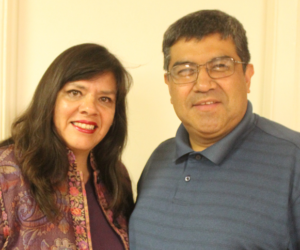
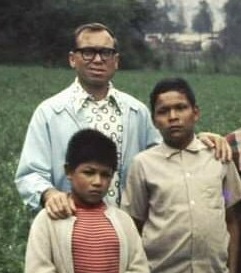
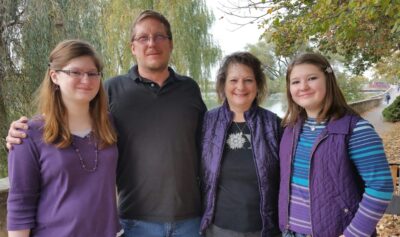
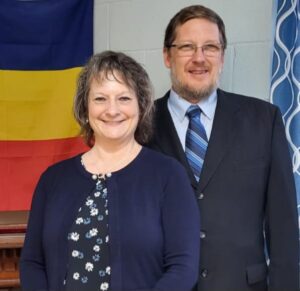
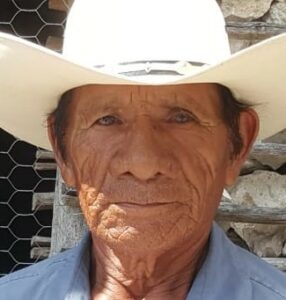 Ten thousand Pame live in San Luis Potosi, a state of central Mexico. They call themselves Xiúi meaning “indigenous.” The Pame cultivate maize, beans, squash, and chili which constitute their main diet. However, the soil is poor and rocky and many Pame are migrant workers.
Ten thousand Pame live in San Luis Potosi, a state of central Mexico. They call themselves Xiúi meaning “indigenous.” The Pame cultivate maize, beans, squash, and chili which constitute their main diet. However, the soil is poor and rocky and many Pame are migrant workers.
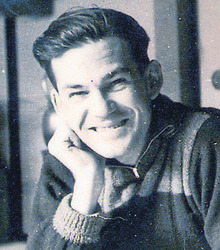
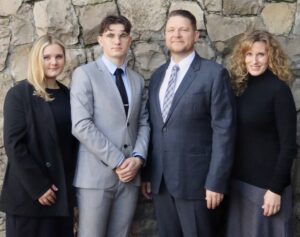

 Before we learned the importance of pronouncing Thai with the proper tones, we would get into a taxi and tell the driver where we wanted to go. The drivers always did a double take and looked at us strangely. We later learned that instead of saying that our destination was Muang Ake, we were saying “knock on your head.” —Vicki
Before we learned the importance of pronouncing Thai with the proper tones, we would get into a taxi and tell the driver where we wanted to go. The drivers always did a double take and looked at us strangely. We later learned that instead of saying that our destination was Muang Ake, we were saying “knock on your head.” —Vicki